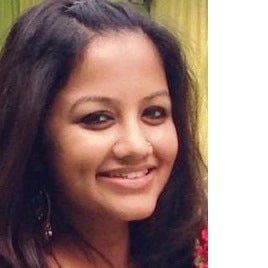Location: Sarfuddinpur, Bihar
December 2014
In June this year, I was in Sarfuddinpur, a village in Muzaffarpur district in north-central Bihar. This was my tenth round of qualitative data collection in this village and I wanted to document the stories of a few Self-Help Group, or SHG, leaders; Shakuntala Devi was one of them. I first observed her presiding over an SHG meeting under the village peepal tree in July 2013. She was expertly facilitating a discussion with other SHG members around loans, but also around child health issues and the challenges faced by women in the marketplace. She disciplined free riders and rewarded contributors with a respected leader’s ease. Since then, I have seen her conduct many other meetings.
Seeing is believing. And seeing Shakuntula lead, assures me of the necessity of strong leaders in delivering participatory development projects successfully.
Sarfuddinpur, a small village off the national highway, falls under the purview of the Bihar Rural Livelihoods (JEEViKA) Mission. Over eight years of association with the project, Shakuntala has steadily climbed the organizational ladder. She is now at its apex – the president of a Cluster Level Federation, or CLF, a collective of over 10,000 JEEViKA women. From zero savings she has built up a stockpile of Rs. 500,000, and consequently moved from a life stricken with poverty to a life of dignity and respect. For our 4 year-long ethnographic study, as we track JEEViKA’s impact on women’s empowerment, Shakuntala is a living poster child. Her journey embodies empowerment in every way – through her successes and failures; through her actions and through her discourse; through her role within the confines of the project, but also in her role as an effective problem solver and samaaj sevika in her day-to-day life.
It’s hard to talk to Shakuntala one-on-one. That is the reality of her eco-system. She lives in a small house with her husband and two teenage daughters, just off the main market, but her door is always open, and women come by without interruption. They come with their issues, questions, or just to share a hello over a cup of tea. I see why Shakuntula is a born leader whose potential the project has harnessed. She’s a natural and multi-tasks with casual ease: signing papers for one, offering a sympathetic ear to another, barking orders to her husband for more tea – while seamlessly floating in and out of conversation with me. JEEViKA inspired her, she says, and in turn, she will ensure that her “constituency” of women never has to suffer her earlier fate. She even contested the Mukhiya elections in 2011 – a bold step in rural Bihar, where entry into the public sphere for women is still via affirmative action. She lost the race but her social capital grew.
Despite this success story, our ethnography reveals that Shakuntala is somewhat unusual in Bihar. Most women play a subordinate role in the domestic space and are reluctant to engage with strangers. Around Shakuntula, these women are transformed. Her courtyard (or durbar as the women jokingly call it) is a safe space for them to express, debate, interject and reclaim the dignity they are otherwise denied. “…and this is the gift of Jeevika. We are now capable (saksham) of saying and doing things unimaginable to us as women. We’ve never had a space like this before.” Shakuntala has inspired many women to take small loans and make their presence felt in the village market place as well as the public sphere.
The above note is part of a FIELD NOTES series, in which researchers and Social Observatory team members record field observations. For more on the SO's work, see: http://www.worldbank.org/socialobservatory.


Join the Conversation